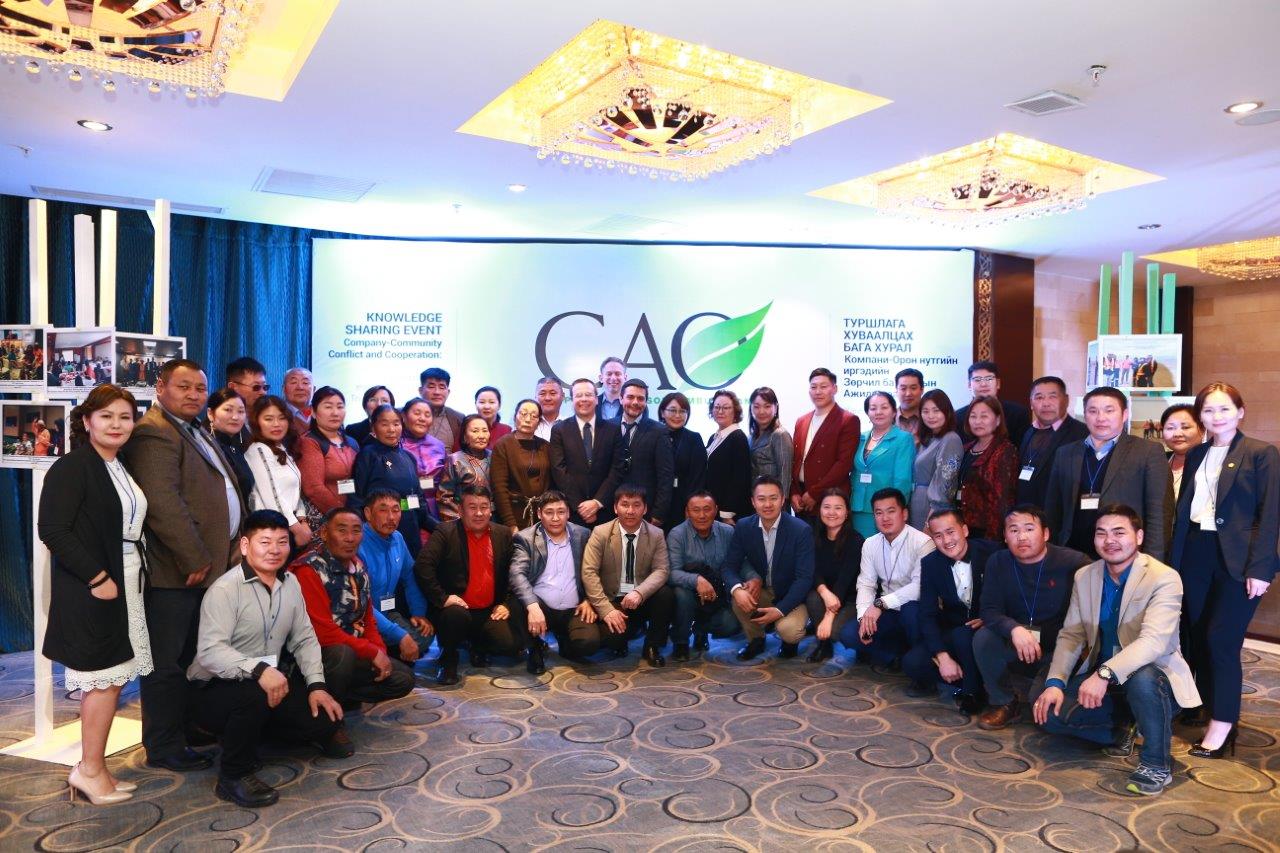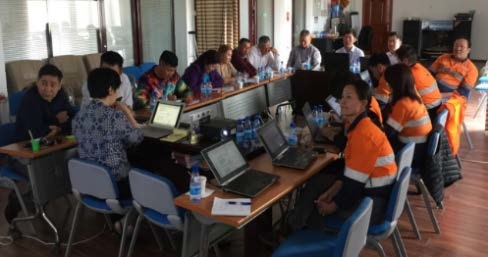
The Oyu Tolgoi (OT) project is one of the world’s largest copper-gold mining developments, located in Mongolia’s Gobi Desert. OT has committed to operating in harmony with local communities including by supporting traditional ways of life and delivering long-term benefits for all parties. This includes listening to and acting on concerns raised by local community members in a way that builds trust.
Nomadic camel herding is a way of life for many families in the Gobi Desert. Herders move their flocks to make the most of warmer months and irregular spring rains, and to seek shelter during winter. From the outset, OT recognised that both the project’s construction and operation could impact local herders living around the mining lease area. It would need to engage effectively with local communities to ensure operational development and the preservation of local culture were not mutually exclusive.
Engaging and disclosing impacts
An Environmental and Social Impact Assessment was completed in the early stages of the OT project to inform initial engagement with local communities. Strategies were developed to address operational impacts and ensure local traditions such as herding, would be preserved. Communities were also engaged to identify opportunities to participate in and benefit from increased economic activity.
However, in 2012 and 2013 a group of herders raised concerns they had not been adequately consulted about a government-endorsed diversion planned for the Undai River, an ephemeral water body that runs through OT’s mining lease area. The diversion was required to avoid potential environmental impacts and ensure the river’s seasonal, subsurface flow was not disrupted by OT’s open pit works. Herders expressed concerns that they were not meaningfully consulted or given enough time to contribute to the diversion design options. They also said herding families were being inadequately compensated to move their winter shelters or change grazing patterns to make way for project infrastructure.
The herders were supported by two Mongolian Non-Government Organisations (NGOs) to lodge two complaints with the World Bank’s Compliance Advisor Ombudsman (CAO). The CAO is an independent accountability mechanism established by the World Bank to receive and help resolve complaints about projects that receive funding support from the International Finance Corporation (IFC). The herders asserted that the IFC, a funding partner of the OT project, had failed to ensure the project met the IFC’s Environmental and Social Performance Standards.
There are two options for responding to CAO complaints:a compliance review, or a mediated solution. It was agreed to follow the latter. OT recognised it had a key role to play in the successful resolution of the complaints and committed to engage with the herders through a voluntary dispute resolution process, to be mediated by the CAO.
Under the Rio Tinto Communities Standard, all sites must have a complaints, disputes and grievances mechanism in line with the criteria of effectiveness for non-judicial grievance mechanisms in the UN Guiding Principles on Business and Human Rights. While at the time OT had (and continues to have) a robust complaints and grievance process which can be activated in these circumstances, the herders preferred to go through an externally mediated process. OT respected this choice, recognising that it was crucial to use a process that the herders felt would be the most legitimate in this situation.
Through maintaining a steadfast focus on sustainable long term solutions, the parties signed two resolution agreements in May 2017 which featured robust milestonespecific action plans. Four years of negotiation included OT designating adequate resources to prepare for, attend and report on meetings. Support from Rio Tinto’s global team was continuously available for the local site-based team. OT also established an internal cross-functional working group led by the communities manger, comprising colleagues from the communities, human resources, procurement, environment and legal functions. OT and Rio Tinto’s senior leadership were also kept informed.
Agreed milestones were devised to ensure a common understanding was reached on key issues and included the completion of independent studies on water impacts and herder compensation. The CAO also provided conflict resolution training to all parties participating in the mediation process,which helped to upskill and build trust between participants.
The 2017 agreements included commitments from OT, as well as local governments, to construct new water wells and upgrade existing ones, develop a pasture management plan, and conduct regular participatory monitoring of the project’s environmental impacts. OT also committed to review compensation outcomes and agreed to undertake further initiatives to boost the livelihood sustainability of all local herders, including enhanced training and employment initiatives.
The CAO’s administrated process formally closed in March 2019 – seven years after the complaint was lodged and six years after the mediation started. Today, OT continues to implement the agreements along with herders and local government.
Long-term benefits
The parties’ commitment to work through complex issues, rather than have one ‘winner’, significantly contributed to the strength of the mediated outcome. Other avenues, such an established complaints management process and an ‘open-door policy’ at community-based OT offices, also remain to discuss agreement implementation and any other queries or concerns. More broadly Rio Tinto has continued to engage with global stakeholders on this matter – in 2018 this included a dialogue between a global NGO working with the herders, Rio Tinto’s Chairman and member of its Executive Committee as part of a broader forum with civil society organizations.
The Council has also been incorporated as a critical governance element into the implementation of the OT-Umnugobi Cooperation Agreement so that herders can have a voice in this work. The 2015 agreement was signed in April 2015 after four years of dialogue between OT and provincial and district officials. It binds OT and all levels of government to work with herder and town-dwelling community groups towards sustainable development in the South Gobi province.
Lessons to share
- Community concerns can only be effectively addressed by truly understanding local communities’ concerns and drivers – this understanding can only be built by open, honest and regular communication
- Do not underestimate the importance of consulting with community members in a range of project studies, including to help build technical understanding so that community members can better understand project impacts
- Constructive relationships depend on trust including procedural fairness – this is true of consultations around project decisions and grievance handling. It is important to have a level playing field for all parties and provide a process through which the parties can and will find mutually satisfactory solutions
- Sustainable dispute resolution is unlikely to come from looking for quick solutions and having ‘one winner’
- Successfully resolving a dispute needs time and resources and a ‘commitment from the top’ to reach a meaningful solution
- Setting up governance frameworks that can ensure longterm implementation of remediation outcomes is key – implementation may be required long after an agreement is signed and the project needs to be equipped to do it, including taking into account staff turnover
A meeting of the Tri-Partie Council in Khanbogd

Leave a Reply
You must be logged in to post a comment.